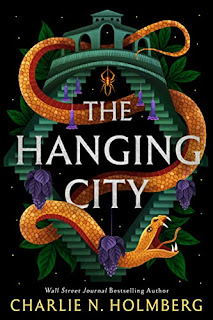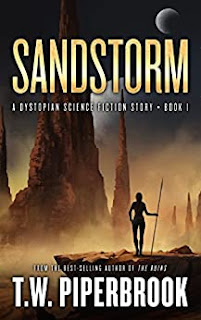Review of "House on endless waters" by Emona Elon - Amsterdam Jews during the war

While visiting the Museum of Jewish History Yoel discovers a video showing his parents with his sister and a till then it seems unknown brother. Back in Israel he calls his sister (both his parents are dead) and asks her about that boy. She tells him the story but we are not told what the story is.
Yoel decides to return to Amsterdam to fill in the blanks. We see him wander the city and write the story of his mother using elements of what he sees or does himself that day. Like when he is drawn to a painting in the Rijksmuseum he wonders why and incorperates that painting by hanging it in the house of his mother's upstairs neighbours.
In the meantime we get to know his mother better by reading the story he tells about her. She was married to a doctor from the Jewish hospital in Amsterdam and leading a happy life with him and their two small children and his best friend and his wife and child who were their upstairs neighbours thinking the war will soon end. But we see dark clouds packing on the horizon and bit by bit the life of the Jewish people in Amsterdam gets more and more dangerous. As a Dutch person I am quite familiar with that history but still it is unnerving to feel the noose tightening.
I was glued to my kindle wanting to know what did happen with little Leo. I had quite a suspicion but still.
But when you then have finished the book it still resonates. So I called my dad who is as old as Yoel Blum and also was a child during the war and studied psychology to become a teacher. The author explains in the book that many of the children that were hidden away from the Germans suffered from attachment problems after the war. When I was that age my mum got severely ill and I was fostered out to different aunties and even I notice how that effected me. Can you imagine an even worse situation during the war? The author in my opinion also describes the effect this all has on Yoel's mother. While she was a happy go lucky woman with friends in Holland later on in Israel she does not want friends. First I thought that was to keep her secret but I realised it was the aftershock of the way she was betrayed.
At the end of the story Tal, Yoel's grandson, says that Yoel's mum acted out of revenge. I think that is not true. I think she kept the secret out of love as it is obvious how much she loved him. Hints to that are all the Madonna sculptures in the museum.
Another layer in the book is how it shows us the live of a writer and how personal adventures end up in novels. How a novel is created. How a famous writer is approached by total strangers. I think that part must be based on the author's own life.
I think it was quite courageous to pick the topic of collaboration by the own Jewish community with the Nazies. I also liked that the Dutch non-Jewish community is shown realistic: some friends from school who become a policeman driving Jews from a park, others dying to save their Jewish fellow Dutch. No black and white cliches.
There is just one point of criticism and that is a case of "lost in translation" from Dutch to Ivriet to English. The word that was used for hiding for the Germans was "onderduiken ( a verb)" and it is translated as "dive (a noon)". Diving IN for instance water is duiken IN in Dutch. But when you want to hide under the blankets, want to pick something from under your desk you use in Dutch duiken ONDER (diving under). That is translated as hiding in or under and not as "Go diving" or "do a dive" I think. As far as I know I have never heard in Dutch the term Duik for the verb Onderduiken. But I am from years after the war.
It does not happen that often but in this case the Dutch translating is already published while we are reviewing the English one.
I am not sure what the title stands for. In the book a synagoge is described as built over water; Yoel's mother uses the proverb "Water under the bridge" often and I think in the Bible it is said that God's spirit was over the waters.





I am very obliged to you that you have shared this important information of immigration lawyer san antonio with us. I got some different kind of knowledge from your webpage, and it is helpful for everyone. Thanks for sharing it once again.
ReplyDelete